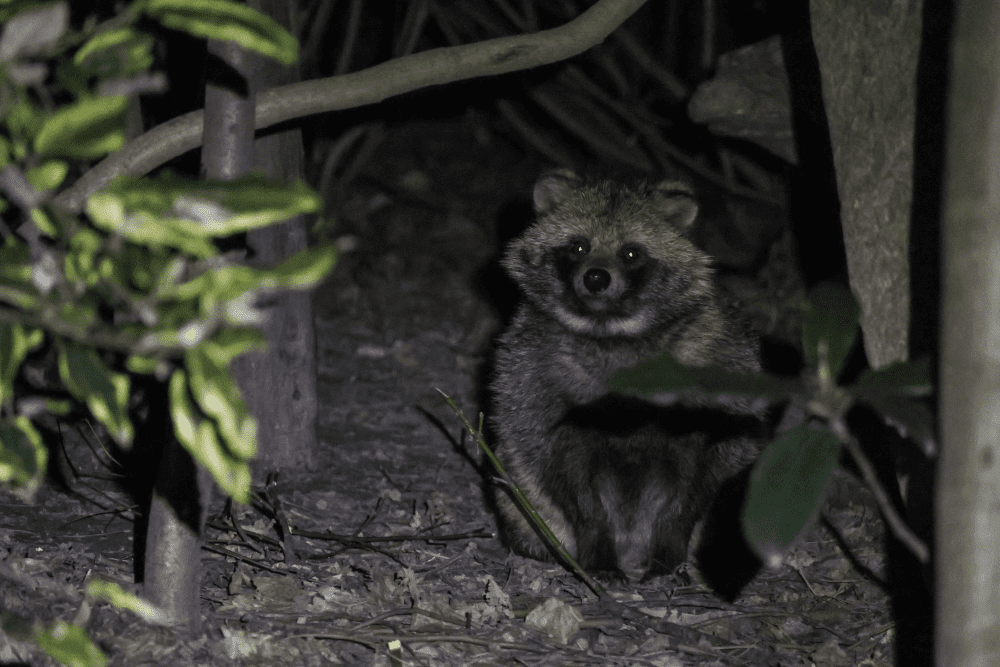Raccoon dogs may have played a pivotal role in the COVID-19 pandemic. The suggestion follows the release of genetic sequences yielded from surface swabs taken at the Huanan Seafood Wholesale Market in Wuhan, China, back in 2020.
The market has previously been suggested as the starting point for SARS-CoV-2, the pathogen that causes COVID-19, but exactly what animal it came from has been a matter of debate. Bats and pangolins were both suspects, but now genetic evidence has found that raccoon dogs may be the most likely intermediate host.
Where did the COVID-19 Pandemic begin?
The COVID-19 outbreak has almost always been considered to be of natural origin (bar a few lab leak theories, most of which have been debunked), but our sights were largely set on bats as the leading culprit. Bats are a good bet, known to act like viral reservoirs with the potential to pass on particularly nasty strains of certain diseases. Bats have been found to carry many coronaviruses, though there’s not yet been evidence of SARS-CoV-2 specifically found in wild bats.
Now, findings implicating raccoon dogs have arisen after the sequences from swabs taken at the market were published online. They were swiftly taken down again, but not before a few researchers across the globe had a chance to download the genetic data and take a closer look.
Genetic evidence marks raccoon dogs as possible intermediate host
French virologist Florence Débarre of the French National Centre for Scientific Research came across genetic evidence published online that could implicate raccoon dogs in the outbreak of COVID-19, says New Scientist. Débarre shared her findings with the World Health Organization (WHO) on March 14, and they are now working with the Chinese Center for Disease Control and Prevention to put the genetic data back online so it can be further analyzed.

Finding samples that test positive for SARS-CoV-2, as well as carrying lots of genetic material from raccoon dogs being sold illegally at the Wuhan market, marks a significant finding. This is because it shows that these animals were present at the market during a critical time for the disease’s outbreak, making the theory that raccoon dogs were the original super spreaders a possibility, though not yet a certainty.
Other species whose DNA showed up in the samples included humans, the Malaysian porcupine, and bamboo rats, explained the WHO. According to a pre-print (Liu et al., 2022), none of the 457 animal samples tested from the market were positive for COVID-19, but none of those samples were raccoon dogs. The high amount of their DNA in the environment shows these animals were at the market, raising questions as to what the result might have been had they been tested.
What are raccoon dogs?
Despite their name, raccoon dogs (Nyctereutes procyonoides) are most closely related to foxes. The species embroiled in the COVID-19 outbreak are the common raccoon dog, separating them from their Japanese raccoon dog relatives.
They’re small, fluffy, and heavy set, with an unfortunate susceptibility to SARS-CoV-2. They had previously been found to test positive for COVID-19, and be able to pass on the disease, so it’s within the realms of possibility that they were among the first to be infected.
The WHO and Scientific Advisory Group for the Origins of Novel Pathogens (SAGO) are now requesting that all and any metagenomic data, like the swabs taken from the market, be made available to the wider scientific community. They are encouraging research teams from across the globe to collaborate with Chinese researchers so that firmer conclusions can be drawn about the origins of the COVID-19 pandemic, potentially helping us to better our understanding of how to prevent a similar outbreak in the future.
Source Link: What Are Raccoon Dogs? Meet The New Face Of The COVID-19 Outbreak